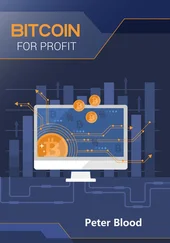Of course it’s not her! The applause that washes up over the podium encourages him, legitimizes his grin, drenches him in relief. Drop dead, Wilbert! It’s not her! Don’t you see that? Call your stepmother, you bum. You got shit in your eyes, or what? You can see it’s not her, can’t you? Wilbert Sigerius, now him they’ll believe. Well, if Wilbert Sigerius says so. Glowing with triumph, he accepts the bottle of wine and thinks: if I could only talk to Joni. If he had her number he would call her right now: listen, sweetheart, let’s just forget what happened. I don’t know if you’ve heard yet, but it’s not you . Mom and I are sure of it. Please come to France, bring Aaron with you. Tell him it’s not you .
Exactly a week later he takes two last phone calls on the electrically warmed backseat of the Volvo. Outside, the city streets, with their sunken tram rails and stately town houses, gradually glide into suburbs and glossy black office parks. The quiet December evening, already deepening into night; the silent strength of his chauffeur at the wheel, who calmly drives him toward the A12—very soon he will be, for a week, a non-minister. He yearns for what the Kingdom of the Netherlands so promisingly calls the Christmas recess; the government car that drives him from The Hague to Enschede is a lever on a mixing console; with each kilometer he is transformed into a family man, the worse for wear perhaps, but still hankering for the French ski village where he’ll celebrate the holidays.
Although he can’t wait to glide down an alp behind Janis, he first looks forward to an evening alone in his own house, listening to his own music, sleeping in his own bed. For the next seven nights he’ll be free from his satyrs, but even freedom can be tiring. Several ecstatic days followed the female professors’ applause, days of excited confusion, his thoughts were already taking a ski vacation of their own: that same evening he quenched his exultant fury with the bottle of Cabernet Sauvignon they had given him at the conference, and then sat down to pen a mea culpa to Aaron and Joni, in duplicate, on a ministry notepad, a letter he had genuinely planned to mail; but upon rereading it on the freezing-cold toilet the next morning, he tore it up and flushed it without hesitation.
It was the day of the beach. He would not be standing at beach marker 101 at eight o’clock sharp, he had decided, and would not bury any bag of money. This was the result of that blissful inspiration Tineke had triggered. He no longer considered himself a blackmail target per se, and in order to bolster this idea he worked stealthily in his office on a serious letter to Joni in which he related Wilbert’s extortion attempt, asking if he could count on her to back him up, form a united front, should Wilbert ever try to put his threats into action. But whether it was just the bustle and constant interruptions, or whether he simply blocked it out, the sliding door incident never made it to the keyboard.
Perhaps because of this, he felt his mood dampen in the course of the day, the triumphant buzz faded, he became softer, squishy, maybe even sentimental. The direct threat dispensed with, he crept out of his bunker and noticed, for the first time in years, a need to put himself in his son’s shoes; we were talking about a guy of twenty-nine after all, a boy really, about the same age as he was when he dropped Margriet like a hot brick. His tongue ran over the words “ministerial accountability” like a molar that’s lost its filling. Everything was fine back in his office in Zoetermeer, his brain saturated with the day-to-day urgencies, but on his way home he played reruns of the past, with his son in various roles: Wilbert perched in his child’s seat on the front of the bike, him looking down on the boy’s soft hair, testily pedaling through an abandoned Utrecht because he couldn’t bear the sight of their national team’s humiliation in the World Cup final; then the panther-like kid with his fanatic horseplay, who some fifteen years later came to liven up his girl-heavy family, and who playfully grabbed him by the wrists behind the farmhouse: the impressive strength of that adolescent body, he felt himself ; the sullen, sagging head in the courtroom less than a year later. What was my part in all this? he thought. How does the kid live? And for what? For whom? Unwittingly and unwanted, blades of pity started sprouting in him.
The flurries have begun, the Volvo makes its way through swirls of snow. His department secretary phones. As they speak, snowflake-speckled signs — towns, distances, exits — emerge from the darkness, at Deventer he signals his chauffeur to pull into a McDrive. They eat their quarter-pounders and fries in the parking lot, calmly chatting about the impending frost, about skiing regions and the best time of year to go.
Jesus — your own flesh and blood. He even attempts to understand Wilbert’s unbridled rage, an enervating exercise in empathy, it is partly meant to anticipate future troubles, naturally — of course there’s an element of tactical thinking; they both got a life sentence, he realizes now — but also to take stock of himself: what mistakes did he make? He tries to imagine how it must have been for a seventeen-year-old kid like Wilbert to be plopped into their family, from that fucked-up food-stamp life in Wijn’s attic to their majestic farmhouse nestled in a poplar grove, inhabited by stable, well-fed, energetic achievers.
He spent that last week at the department with these kinds of thoughts on his mind, and when his chauffeur dropped him off at his flat on the Hooikade he knew what he had to do. He changed out of his suit into jeans and a fleece sweatshirt, and took the rickety ladies’ bike from the downstairs landing out to the street. Off to the beach after all. With nervous resignation he cycled out to Scheveningen, without the money, but with the steadfast resolve to wait at beach marker 101 for his son. Surely Wilbert would come dig up the loot that same evening. Eye to eye it should be possible to engage him, maybe talk some sense into him. He was prepared to chance it. He would try to assess the danger, see how aggressive the kid looked; before he left he had stood in his expat-kitchenette holding a tomato knife, but thought better of it. Naturally he wanted to convince Wilbert he didn’t have a leg to stand on, that this was not a blackmailing family — but without force, and intending to assure him that he belonged, that he was part of the family, no matter what, in spite of everything, in spite of the past. He conducted that odd tête-à-tête in his mind, a father-and-son conversation that would begin awkwardly and would probably end awkwardly too. And yet he wanted to extend his hand one more time.
So there he stood, on December 14, 2000, at eight in the evening, on the pitch-black Scheveningen beach, shivering from the cold, but in fact mostly from nerves. The wind at his back, he paced around marker 101, giving the briny wooden stake the occasional kick just to release tension, rehearsing what he was going to say, scanning the shadowy dunes until he had differentiated the various shades of black, and finally concluding from the total lack of movement in that teeming darkness that Wilbert was not going to show up. He waited until ten, eleven o’clock, the sea approached him — the sea did, yes — and then he declared himself crazy. A sentimental, naïve dickhead.
That weekend he stayed in The Hague. Not much point in hanging around in Enschede on his own. He worked a bit on the table in a living room that wasn’t his, his sandy shoes on a newspaper, and to his surprise all was quiet: no text messages about not-buried bags of money, no sign of life, nada, and when the last days before the recess steamrolled over him, long workdays laced together with end-of-year cocktail parties and last-minute Cabinet decisions, a vague, almost existential doubt crept over him: maybe he was being paranoid, who’s to say he was dealing with Wilbert after all? Couldn’t he have fallen prey to some anonymous nutcase who one way or another had stumbled across Joni’s online mischief and decided to give him a run for his money? Welcome to the reality of The Hague. He felt strangely provincial on Tuesday when he went to return his untouched 100 grand to that same MeesPierson girl. Maybe he had been living for weeks now in a phantasmagoria of guilt, maybe he had let himself obsess about his insane progeny to the point of narcissistic personality disorder.
Читать дальше












